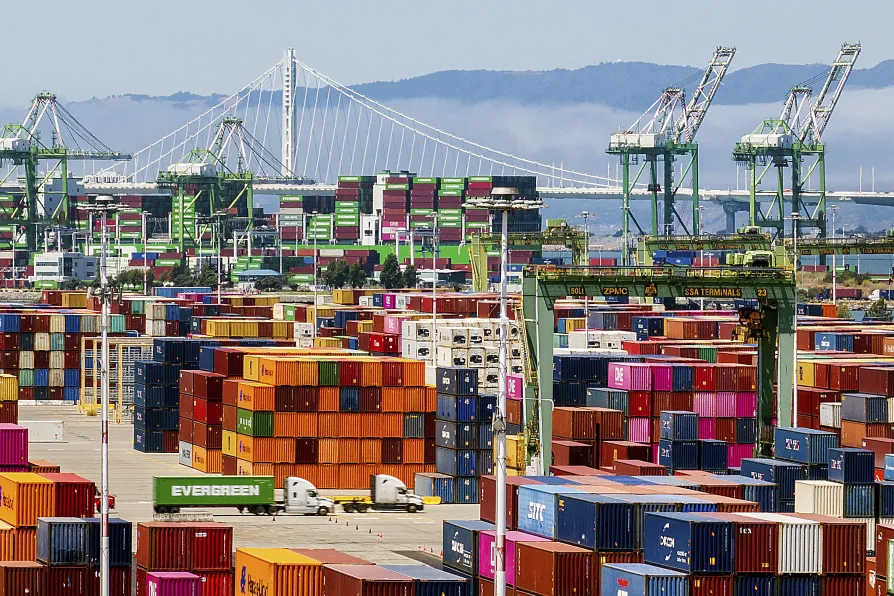
 Cargo containers line a shipping terminal at the Port of Oakland on July 31, 2025, in Oakland, Calif
Cargo containers line a shipping terminal at the Port of Oakland on July 31, 2025, in Oakland, Calif
US PRESIDENT Donald Trump signed an executive order to reimpose reciprocal tariffs on dozens of countries on Thursday.
Another executive order increased tariffs on certain Canadian goods, with the White House accusing Ottawa of failing to “co-operate in curbing the ongoing flood of fentanyl and other illicit drugs” entering the US.
In a statement on Thursday, titled Further Modifying The Reciprocal Tariff Rates, the US listed “adjusted” tariff rates for 69 countries.
US-bound exports from some major trading partners – such as Britain and Australia – will be subject to a baseline rate of 10 per cent. Other nations will see tariffs of 15 percent or more.
President Trump said the step was being taken because of a “continued lack of reciprocity in our bilateral trade relationships.”
He said: “I have determined that it is necessary and appropriate to deal with the national emergency declared in Executive Order 14257 by imposing additional ad valorem duties on goods of certain trading partners.”
Canada’s tariffs came into force immediately, but most of the announced tariffs will not go into effect until August 7.
Canadian imports will be hit with a tariff of 35 per cent, rather than the previous rate of 25 per cent, because the White House said Ottawa had “failed to cooperate” in curbing fentanyl flows.
Earlier in the week President Trump said Canada’s indication that it was moving to recognise a Palestinian state would make reaching a deal “very hard.”
The US also interfered in the domestic affairs of Brazil, hitting the South American nation with another 10 per cent on top of the previous 40 per cent rate, which had been set in retaliation for its prosecution of far-right former president and Trump ally Jair Bolsonaro over an alleged attempt to overturn Brazil’s 2022 election.
The far-right government of Narendra Modi in India faces a 25 per cent tariff, plus an additional unspecified penalty for buying Russian weapons and oil.
China, the only country that has driven a hard bargain with the US, has a separate deadline as talks continue. China dominates the mining and processing of rare earth minerals that are vital for the US economy.
Mexican President Claudia Sheinbaum said on social media that Washington had agreed to a 90-day extension thanks to ongoing dialogue.
The White House has previously announced tariff agreements with the European Union, Japan, the Philippines, Indonesia, South Korea, Vietnam, Cambodia, Pakistan, Thailand and Britain.










